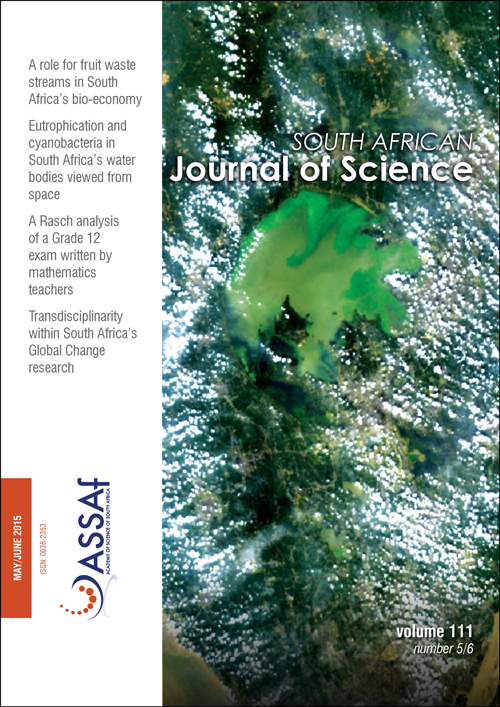Fruit waste streams in South Africa and their potential role in developing a bio-economy
DOI:
https://doi.org/10.17159/sajs.2015/20140189Keywords:
bio-economy, bio-energy; fruit waste, value-added products, wastewatersAbstract
Current and previous studies on bio-based (fruit) wastes and wastewaters, with a particular emphasis on research in South Africa, were reviewed. Previous studies have focused predominantly on the beneficiation and application of fruit waste as a feedstock for renewable energy. A definite gap in knowledge and application of fruit waste streams with regard to enzyme production as a value-added product is identified. The characteristics and composition of each type of fruit waste are highlighted and their potential as feedstocks in the production of value-added products is identified. The conversion of agri-industrial wastewaters to bioenergy and value-added products is discussed, with special mention of the newly published South African Bio-Economy Strategy, and the potential production of biofuels and enzymes from waste streams using recombinant Aspergillus strains. Finally, to maximise utilisation of waste streams in South Africa and abroad, a conceptual model for an integrated system using different technologies is proposed.
Published
Issue
Section
License

All articles are published under a Creative Commons Attribution 4.0 International Licence
Copyright is retained by the authors. Readers are welcome to reproduce, share and adapt the content without permission provided the source is attributed.
Disclaimer: The publisher and editors accept no responsibility for statements made by the authors
How to Cite
- Abstract 1048
- PDF 1774
- EPUB 249
- XML 327













.png)